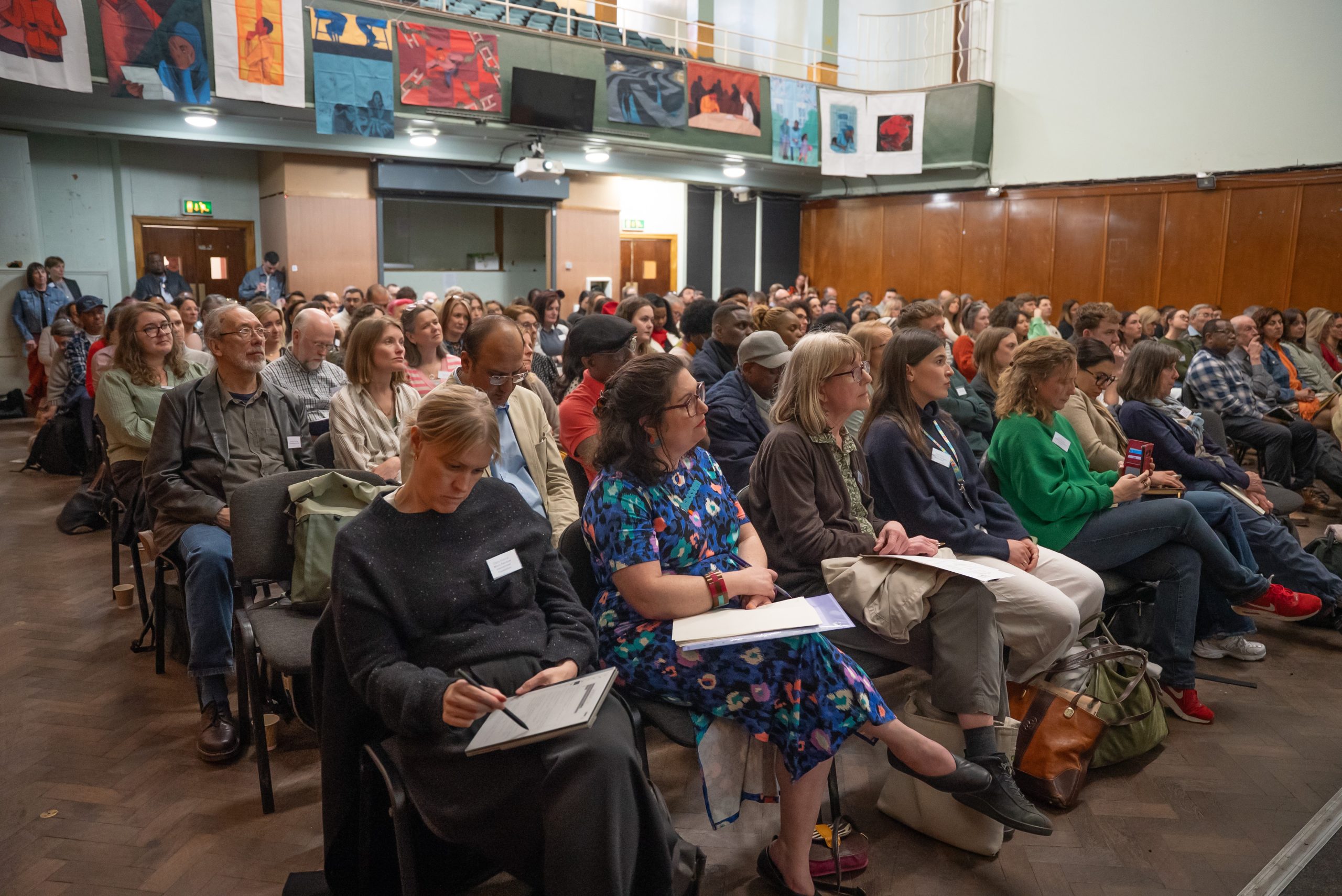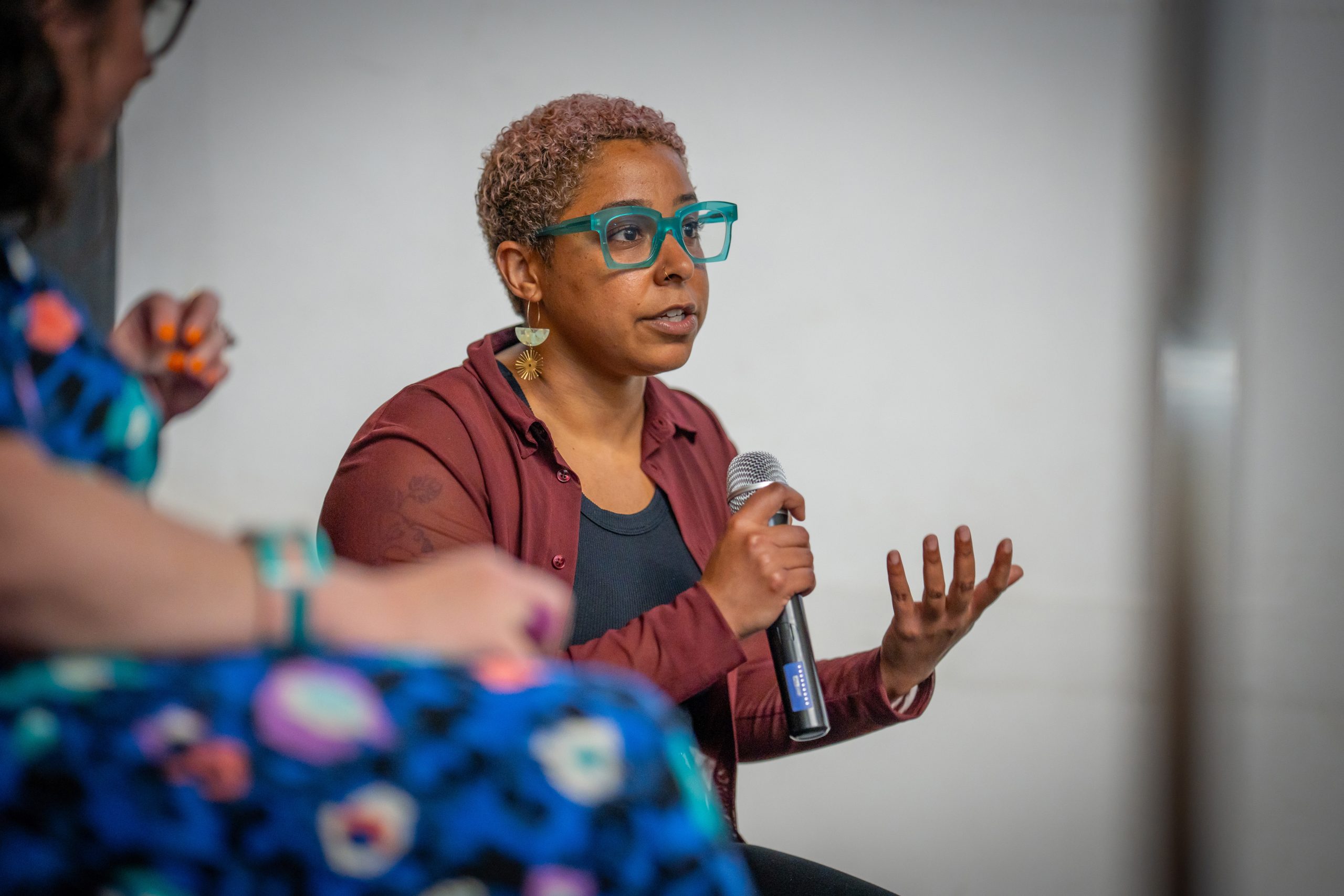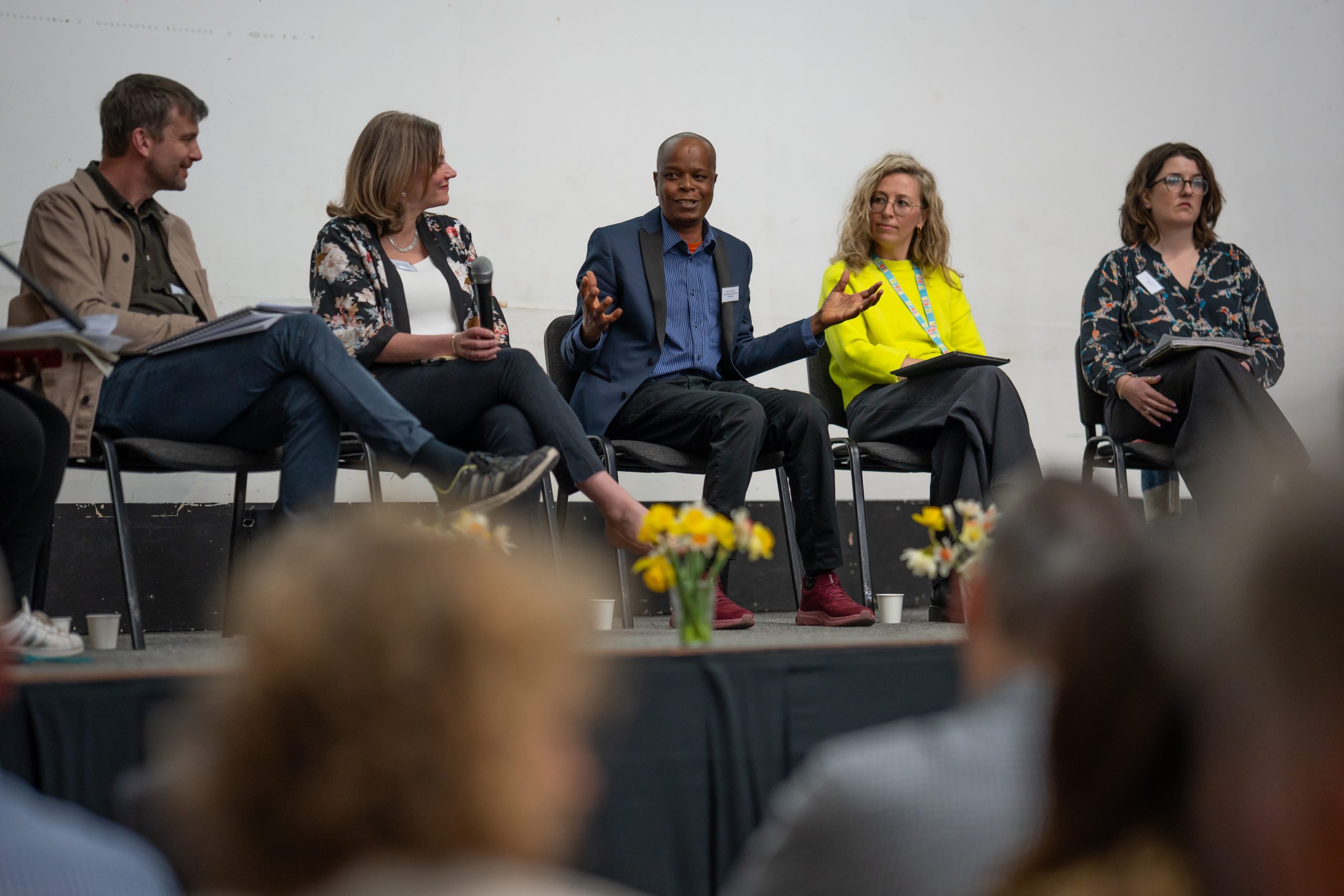
“NACCOM is not just an organisation or a network. It’s a movement; a community of passionate individuals and incredible organisations committed to making real change”.
As Bridget Young, NACCOM’s Director, opened our Annual Conference on 9 April in Manchester, every single person in the room helped us to collectively mark a significant milestone – our 10th anniversary as a registered charity. Working towards a future without destitution and homelessness has been our common goal since our journey began nearly 20 years ago, also in Manchester, initially as an informal network.
Our annual conference was an opportunity for our members and partners to come together in-person to share good practice, skills and strategies to end destitution in both the short and long-term. The environment for those in the asylum and immigration system continues to be an increasingly difficult one, so we wanted to explore key challenges and opportunities to inform and support our collective work this year. The agenda was jam packed: from examining the role of lived experience through an anti-racist lens to looking at different approaches for housing provision and exploring the current political context for asylum and immigration. We wanted to use the day to gather insightful feedback and ideas on what the next stage of our journey could and should look like.
Bridget added: “More than anything I’ve ever been involved in, NACCOM feels like a place where so many people have played an important role in this journey, and we are greater than the sum of our parts.” Using a poignant analogy of helping starfish stranded on a beach, NACCOM’s founder, Dave Smith echoed this sentiment when he later told delegates: “Even though each organisation makes a difference on its own, we make far more difference when we work together”.
The importance of lived experience
To start the day, we heard from the brilliant Martha Awojobi, CEO of JMB Consulting. Martha is an award-winning fundraiser, and curator of Uncharitable (formerly #BAMEOnline). They work with organisations to understand racism, reflect on their relationship to white supremacy and work towards a transformed anti-racist vision for a liberated future. We invited Martha because we are committed to being an anti-racist organisation. We recognise that we have much to learn, develop and improve upon, and that this is an open-ended process, but remain committed to fighting against racism in all its forms.
In their keynote speech, Martha discussed the concept of whiteness as a social construct, emphasising that race is a dynamic process of racialisation influenced by power and exploitation. Whiteness is a political tool rather than an identity based on skin colour, and it has historically been used to divide and oppress marginalised groups.

Martha critiqued the notion of “lived experience” as a metric or a recruitment tool, which if not incorporated in a conscious way can be misused as a quick fix for deeper organisational problems. Instead, they suggested that lived experience should be seen as a knowledge-building project rooted in the experiences of marginalised people to dismantle oppression. Their words resonated with many at the event; one attendee said they’d been thinking about “how you give people who have had lived experience not just the agency but the power to make change for themselves rather than it be done to them.”
To illustrate, Martha suggested it would be better to resource and support grassroots activist groups, rather than recruiting diverse individuals to staff teams and charity boards. They also urged organisations to pay for training, advocate in rooms of power, and share resources, as well as critically examine their practices and power dynamics to make their workplaces more welcoming to people with lived experience, support marginalised communities and ultimately fight for liberation. “You can see how that’s happening today”, as one attendee put it afterwards. “Because [race] was socially constructed, that means it also can be socially deconstructed. Some hope for the future, maybe!”
A journey we’re all on
Bonnie Williams, CEO of Housing Justice, later considered during our plenary discussion: “Achieving greater diversity is a journey we’re all on. We need to make sure we’re fit for purpose when working with people with lived experience.” She asked for NACCOM to keep supporting organisations to do better, potentially with facilitated conversations or training courses about power sharing and wider representation. Another attendee agreed: “We need to listen to what people with lived experience want to say and not just fit them in to show we are inclusive”.
Reflecting on Martha’s comment that lived experience is a knowledge building project, Sophie Wickham, Executive Director of AFRIL said there were elements of this in NACCOM’s approach, evidenced in some campaign successes such as the extension to the 56 day move-on period. “We hope this will be a quiet reform of the new government” she said. “It shows the shows the success of our collective campaigning.”
As the next year advances, advocacy and empowerment should be a critical part of NACCOM’s future. As Nico Ndlovu, a NACCOM Community Researcher said when talking about his experience of volunteering and training with NACCOM, “I’ve come to understand my own situation and I can talk about other peoples’ as well, so I can raise awareness.”

Growing together
The conference provided space for delegates to reflect on the role that NACCOM can play in further supporting members to build power and capacity. As one attendee put it, “I have gained so much from NACCOM over the years and want to see it go from strength to strength, adapting to the changing environment and demands and changing membership too.” These are just a few threads from the tapestry of conversations that were shared throughout the day.
First, internal processes and capacity were an area of focus. Bonnie Williams, CEO, Housing Justice, advised: “I’m keen for NACCOM to help our sector to become well run. For example, to help us to fight for funders to recognise that we need funding for professional and personal development, including being able to take wellbeing more seriously. We need to be able to apply our own gasmask first so that we can be kind and compassionate people.” In a similar vein, Sophie Wickham, Executive Director of AFRIL said she would like NACCOM to lead a discussion on procurement support: “We could be stronger together in organisational capacity.”
Second, some attendees said that NACCOM could provide support for organisations seeking funding. For instance, some would like to learn how to show cost-benefit analysis and social return on investment. There was a marked difference between organisations that do and do not have access to this type of impact analysis and it affected commissioning and funding opportunities.
Third, there was a discussion on cultural competency. In particular, Amreen Qureshi, a research fellow at the IPPR, commented that to address racial discrimination within the asylum and immigration system, there needed to be a renewed focus on cultural competency and addressing the racist ways that policies are designed in the first place. This would require better enhanced training of staff who are handling casework and conducting interviews.
Finally, many attendees agreed that the entire asylum and immigration system needs changing and ways to do this were discussed in detail. Key points raised included the Home Office making better asylum decisions so that they get it right first time; allowing asylum seekers to work; and better provision for people with NRPF who so frequently fall through the cracks. Bridget reflected that bolder messaging from NACCOM and partner organisations would help achieve these aims.
Final thoughts
Thinking about our learnings for next time, a common piece of feedback was that there could have been more structured opportunities for networking, input and questions from delegates. “Creating more opportunities in the schedule for our delegates to have the chance to speak will be a priority” reflected Bridget, “as will making sure everything runs to time, and being consciously action-focused so that attendees can spend more time discussing practical solutions to shared challenges.” Nonetheless, most feedback has been overwhelmingly positive: “There was a lot of love and solidarity in the room, so needed to sustain and grow the NACCOM network’s impact,” said Renae Mann from Refugee Council in her comments afterwards.
Summarising the day, Shukry Adan, NACCOM Trustee, said: “I hope that one day we won’t exist as a network because everyone has a place to call home” – a sentiment that was shared by many. “If we accept anyone being denied their basic rights, dignity or humanity, we risk eroding these very things for everyone,” said Bridget. “We all have a role to play in tackling racism, in tackling oppression, in tackling the hostile environment and in just making the world a better place than we found it.”
We’d like to thank everyone who attended the conference as a speaker or delegate, and very much look forward to welcoming you back next time.


